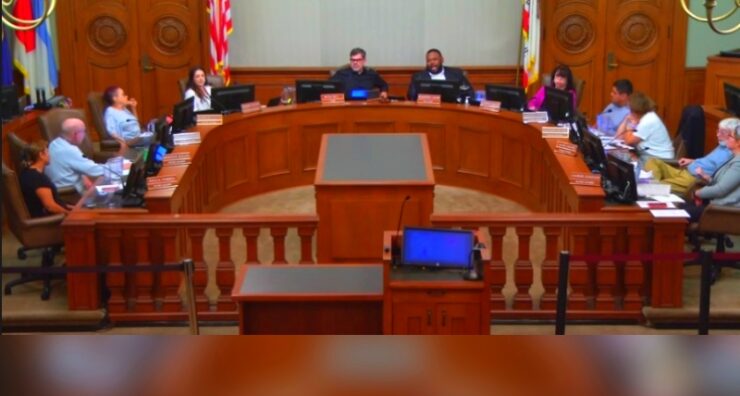
The City of Pasadena stands at a pivotal moment as it updates its foundational governing framework: the City Charter (originally adopted in 1901 and last meaningfully updated 25 years ago). As a member of the Charter Reform Task Force, I urge the City Council to include the proposed term limits for City Council members, including the Mayor on the fall ballot. This thoughtfully developed recommendation calls for a maximum of three terms, and allows for a potential return for two additional terms after a four-year hiatus. After five terms, the official would be ineligible to seek the previously held office again. The Task Force settled on this measured approach after reviewing best practices with the goal of balancing the benefits of accumulated experience with the benefits of injecting new diverse perspectives. We believe this path will invigorate our local government, ensure diverse and representative leadership, and foster greater trust in our political system.
Injecting Fresh Ideas and Perspectives
One of the most compelling reasons to implement term limits is the infusion of fresh ideas and perspectives into our local government. Long-term incumbency can lead to stagnation, where innovative solutions and new approaches to persistent problems are stifled. By setting reasonable term limits, we create a regular opportunity for new leaders with diverse backgrounds and experiences to bring forward novel ideas and strategies. This dynamic change can lead to more effective governance, responsive to the evolving needs of our community.
Promoting Diversity and Inclusion in Leadership
Term limits can also pave the way for a broader and more diverse set of leaders to serve Pasadena. Our city is a mosaic of cultures, backgrounds, and perspectives. We are fortunate to have improved representation over the years, but I know we can continue to do better especially with our gender mix. However, without term limits, the same individuals can dominate the political landscape, limiting opportunities for emerging leaders from underrepresented communities. Though I have great respect for those who have served the City for decades, I am confident if these seats were to turn over in a measured fashion we would be impressed by the enthusiastic and fresh faces who would vie to serve. By implementing reasonable term limits, we open the door to a wider array of voices, ensuring that our leadership reflects the rich diversity of our population while maintaining sufficient longevity to preserve valuable institutional knowledge. This inclusivity can lead to more comprehensive and equitable policies that address the needs of all residents.
Mitigating the Incumbency Advantage
The incumbency advantage is a well-documented phenomenon in California municipal elections, where approximately 90% of incumbents are re-elected. This advantage often stems from greater name recognition, established donor networks, and the ability to leverage the resources of the office. While experience is valuable, perpetual incumbency can discourage qualified challengers from running, stifling healthy competition. Term limits would help level the playing field, encouraging more candidates to participate and invigorating the democratic process. This increased competition can lead to more robust debate, better policies, and a government that better serves its constituents.
Building Trust and Confidence in Our Political System
In an era where trust in government is waning, term limits can enhance transparency and accountability, thereby helping restore public confidence. When officials know their time in office is finite, they may be more motivated to act in the public’s best interest rather than entrenching their political careers. Furthermore, the recent poll conducted by Berkeley researchers on behalf of the Evelyn and Walter Jr. Haas Fund found that approximately 75% of Republicans, Democrats, and nonpartisan voters favor restricting how long key local officials should serve. The preferred limit among respondents would be two four-year terms (eight years total), the poll found. Similarly, corporate board of directors seem to share this perspective as the average tenure of a Fortune 500 CEO is just shy of eight years. This bipartisan support underscores a collective desire for change and a more accountable government.
The Risks of not Acting
Ignoring this sentiment could lead to voter-initiated ballot measures that impose more stringent term and campaign limits than those recommended by the Task Force (witness local rent control (Measure H) which is still being navigated). By proactively adopting these reasonable limits, the City Council can demonstrate its commitment to responsive and responsible governance based on thoroughly vetted best practices versus opening the door to well-intentioned activists who might opt for “rough justice” solutions that may lack the guardrails currently being proposed. Strong selfless leadership is certain to result in a more favorable and timely outcome.
A Personal Perspective
As a former City Councilmember in Pasadena, I have witnessed firsthand the challenges and opportunities within our local government. I believe that term limits will not only enhance the effectiveness of our elected officials but also encourage a more engaged and participatory electorate. We know that the public’s confidence in government is a direct reflection of the fairness and transparency of the system. I realize none of these measures alone are any type of silver bullet but collectively they demonstrate a commitment to improving both the perception and reality of our electoral system. Some say term limits restrict voter’s choice, I say put your personal agendas aside and let the voters decide this crucial issue.
Andy Wilson served as City Councilmember District 7 2015 – 2022 including 2 years as Vice Mayor. He served on the recently concluded Charter Study Task Force though this editorial is written by him as an individual and not in any formal capacity.














 3 comments
3 comments



